Badfinger’s Pete Ham at 75 – the most tragic story in rock ‘n’ roll
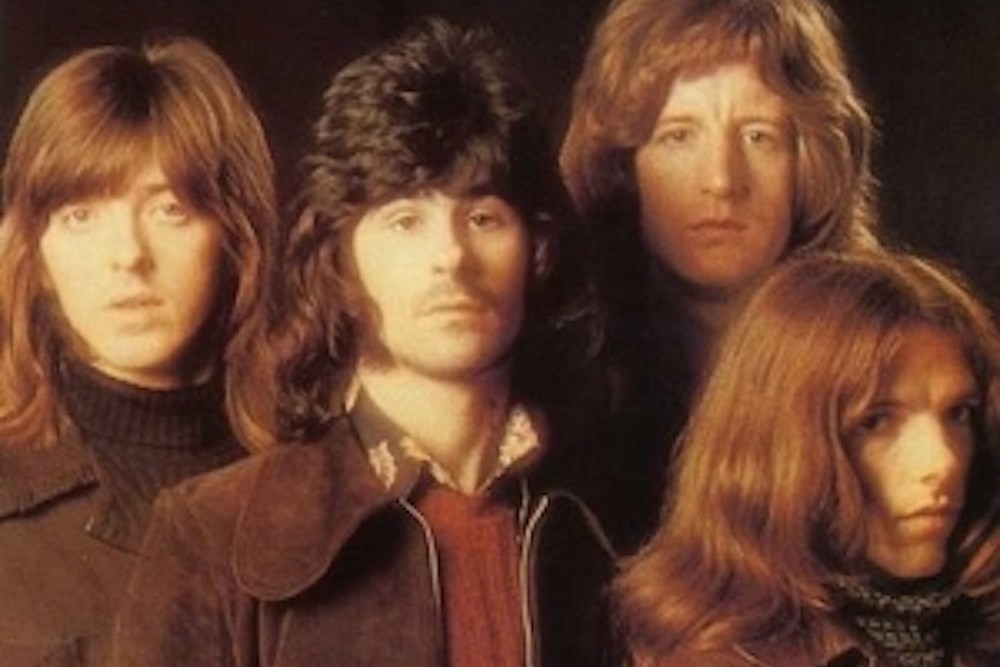
Leon Barton
There aren’t many times when the finale to a television show is a cultural event but the final episode of Breaking Bad could be considered one such occasion, with the death of main character and anti-hero Walter White soundtracked by the song ‘Baby Blue’.
The track, from 1971, is an upbeat and engaging overview of a romantic relationship recently consigned to the past, a breezy celebration of what was, rather than sorrowful lament for what could have been.
The song’s writer should by rights be a muti-millionaire celebrating his 75th birthday this week. Instead, three days before turning 28, Swansea-born Pete Ham went into the garage of his Surrey home, placed a noose around his neck and joined Jimi Hendrix, Jim Morrison, Janis Joplin and Brian Jones in the famed ’27’ club, rock ‘n’ rolls most morbid club.
Ham also co-wrote ‘Without You’, a massive hit in 1972 for Harry Nilsson and again in 1994 for Mariah Carey. Paul McCartney described it as ‘the killer song of all time’. But in April 1975, penniless and feeling trapped by the insidious mechanisms of the music industry, one of Wales’ most talented songwriters – and the man whose punchy, melodic songs arguably invented a new sub-genre which became known as power pop – could tragically only see one way out.
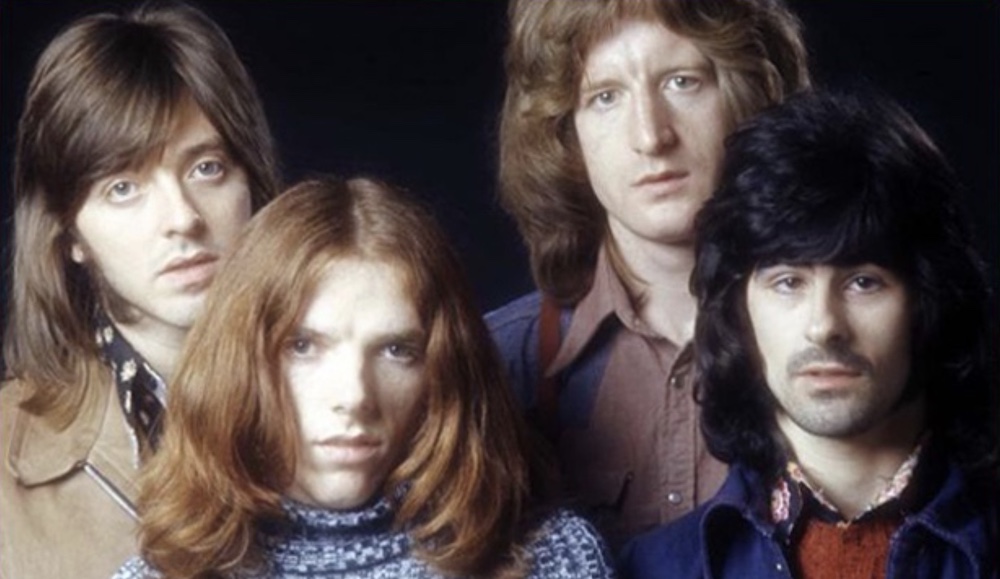
The Swansea scene
Pete Ham grew up on Swansea’s Townhill estate and was enthralled by rock ‘n’ roll from a young age, spending hours practicing guitar in his room. The Swansea music scene in the early-1960s that Ham threw himself into as a teenager was described as ‘second only to Liverpool in having the best live rock ‘n’ roll scene outside of London’ by Manic Street Preachers’ James Dean Bradfield in a BBC radio documentary about Badfinger.
The Meteorites, The Fireflies, The Jets…it was in this vibrant musical environment that Ham’s band The Iveys (named after Ivey Place – near to Swansea’s High Street Train Station – where the band rehearsed) would develop, catching the eyes and ears of Bill Collins manager of Merseybeat stars The Mojos (and father of ‘The Professionals’ actor Lewis Collins).
Collins became the band’s manager, moving Ham and his bandmates Mike Gibbons (drums), Ron Griffiths (bass) and Dai Jenkins (guitar) into an overcrowded house in London in 1966. Jenkins was asked to leave the band the following year, with scouser Tom Evans coming in to replace him.
In 1968 The Iveys became the first band to officially sign to the Beatles’ Apple label after being pushed by Beatles roadie/friend Mal Evans. It might have helped that Bill Collins’ was an old acquaintance of Paul McCartney’s father. A further Beatles connection was formed by the fact that Ham’s singing voice was remarkably similar to McCartney’s.
The Iveys ‘Maybe tomorrow’ single was produced by Tony Visconti (later to find fame as David Bowie and Marc Bolan’s producer) When it became a hit in Europe and Japan (and a minor hit in the States) Visconti was surprised because ‘I really didn’t rate it much’. It didn’t do anything in the UK.
Come and get it
To gain some degree of domestic success it was decided that a name change was in order, as The Iveys sounded a little trite and dated. Various suggestions were thrown around at Apple HQ before Badfinger found favour. It came from ‘Bad finger boogie’, the working title of McCartney’s song ‘With a little help from my friends’.
As well as a new name, it was also decided that a little Beatles songwriting magic dust might help set them on their way.
‘Come and get it’ was a song McCartney knocked out a demo of in less than one hour and was available for The Beatles ‘Abbey Road’ album. According to music writer Ian McDonald ‘John Lennon was in the control room throughout and the fact that he didn’t come out to add a harmony vocal suggests that he was, at best, indifferent to the track, or that there were already enough McCartney songs in the can for the album’.
McCartney considered Badfinger a ‘great band but they’re gonna need a hit to get them started..’ He was insistent that they record the track exactly as he wished, despite the band wanting to make changes. It went top 5 in the UK and US. That McCartney gave an obvious hit to his young charges may have been ‘a loaded gesture’ following Lennon’s lack of interest in contributing, suggests McDonald in his book ‘Revolution in the Head’. McCartney has always denied there was any hidden meaning in the song title. The fact that he started performing the song live in 2011 suggests it’s one that he remains proud of.
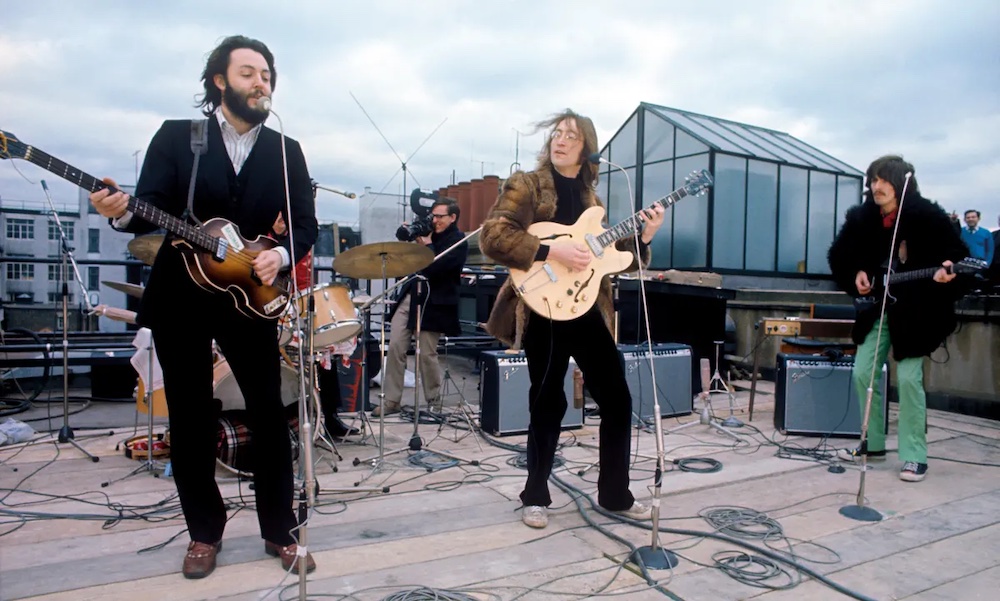
Joey Molland, another Scouser, then came in to replace Ron Griffiths, whose status as a newly married father was at odds with the rest of them. The band was now half-Swansea, half Scouse.
Although it was a Paul McCartney song that launched the newly monikered group – and all four members wrote – it was soon becoming clear that Pete Ham was the band’s one truly great songwriter.
Ham’s girlfriend at the time Beverley Tucker told the BBC why his songs tended to be deeper than those of his bandmates. ‘He was a person who thought very much about moral issues and how unjustly some people were treated.. so his words always came from the heart. He wasn’t so commercial. Tom knew how to work the business, what people would sing along to. That was something Pete had to learn – he was very instinctive’.
This split in dynamic was apparent in something Ham and Evans worked on together at the start of the seventies.
Tucker again; ‘Pete had been working in the studio for about three weeks soldily …I’d barely seen him…and he promised me we’d go out. We were all ready to go when Tom poked his head around the door and said ‘can you come into the studio with me? …I’ve got an idea for a song’. Immediately, Pete said ‘no, we’re going out, I’ve promised Bev’. Tom obviously looked a bit dejected and I looked at Pete and said ‘no, you go’ because….that’s what he loved doing … I said ‘I’m fine about it’ and he said ‘no, I promised’. I said ‘look at me – I’m smiling’ and he turned around and said ‘your mouth is smiling but your eyes are sad’.
This became the theme of the first verse of a song that would go on to become Ham’s most famous (co-)composition.
The chorus of ‘Without you’ had been written by Tom Evans, something he likened in style to The Beatles’ ‘Help’. Ham thought the new verse he had been working on would be a good fit, but Evans was dismissive of the finished song; ‘I thought it was corny’.
Still, as an album track it would do, so onto 1970’s ‘No Dice’ it went and the band thought little more about it.
‘Without You’
A couple of years on, American singer Harry Nilsson heard it at a party in Los Angeles and assumed it was a Lennon-penned Beatles song that had previously passed him by. With his once-promising career stalling, Nilsson had his ears wide open for a song that might help revive his fortunes.
‘I called up (producer) Rishard Perry and said ‘I think we’ve got one!… he said ‘I think you’re right’. We did it because my career was on the wane and we wanted something to make a hit. You have to have hits. I don’t care who you are. If you don’t have hits, fuck you’.
Helped by its lavish string arrangement, Nilsson and Perry turned ‘Without you’ into a power ballad of epic proportions.
Ham and Evans were suitably impressed when they heard Nilsson’s version, believing it showed the power of good production and a good singer to transform a song. Nilsson’s version is certainly more cohesive than Badinger’s although in ratcheting up the melodrama – with all those strings and elongated notes in the chorus – it was also way more saccharine.
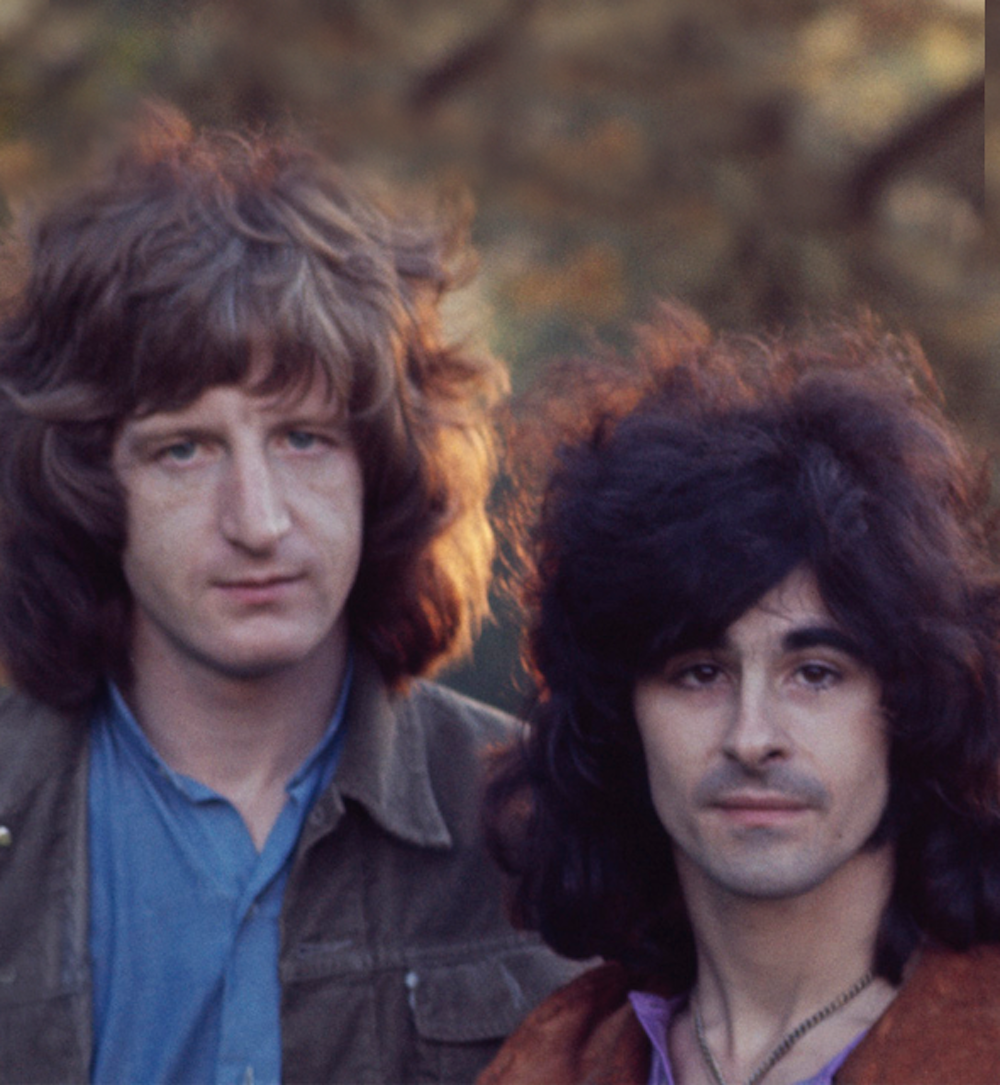
Still, the American’s instincts on what makes a hit were correct, his 1972 version of the song going to number 1 for several weeks in both the UK and USA.
In August 1970 American business manager Stan Polley sweet-talked Bill Collins into doing business with him. It was a turning point but for all the wrong reasons.
Collins defended himself years later by saying ‘I’m not legally minded… I’m not a businessman..I had to do it on feeling, trust… you might say that was a poor show for the group I was looking after… but they had a chance to talk to lawyers themselves. Everything was discussed’.
Gibbons described Polley as ‘the kind of man who could sell sand to an Arab’ but Tom Evans was concerned. He was the last to sign the contract placed in front of the band. ‘It will be alright’ Ham reassured him, his trusting nature coming to the fore.
Ham had full faith in Bill Collins to do the right thing by the group, whereas Evans had come to see him as being completely out of his depth.
No Matter What
‘We had ‘No Matter What’ in the can for a year but Apple didn’t think it was a single’ claimed Tom Evans. Apple were shown to be wrong when the song reached number 5 in the UK. The crunchy guitar and sweet melodies of ‘No matter what’ perhaps best crystallised Ham’s talent as a songwriter. About a year on, another Ham peach ‘Day after day’ also reached the top ten but this was to be the band’s final UK hit.
Apple decided to go all out for US success, to the extent that the ‘Day After Day’ follow-up ‘Baby Blue’ (a No.14 US single and “a song of Beatle-scale magic,” according to musician/critic Will Birch) remained inexplicably unissued in the UK. The band started spending more and more time in the States, where the press were keener than anywhere to discover the ‘new Beatles’. The association was to a prove a double edged sword.
“Everyone who interviews us wants to talk about The Beatles,” Ham told Melody Maker. “Sure we were influenced by them, like ten million other groups. There are a million groups copying Led Zeppelin at the moment, but nobody bothers to criticise them for it; we like melodies and songs, and we get called the second Beatles.” Joey Molland took a different view; “To have been associated with The Beatles has done us a lot of good, because they are great people. We’re not complaining.”
The band consolidated their Beatles connection by contributing heavily to George Harrison’s acclaimed solo debut ‘All things must pass’ before going on to back the former Beatle at his gigantic Concert for Bangladesh benefit gig. One of the highlights was Ham and Harrison’s acoustic take on ‘Here Comes The Sun’.
By this time Apple was falling apart though, with Ham telling the press ‘there wasn’t much promotion done (for the ‘Straight up’ album) because there suddenly wasn’t anyone left at Apple to work on it’. That LP featured ‘Day after day’ and ‘Baby blue’ and deserved to be a hit.
Music journalist Chris Charlesworth was flown out to interview the band in New York in early 1972. He recalled: “I met Bill Collins, who I thought was a bit of a wally – far too protective and a bit naïve at the same time – and also Stan Polley on the US trip. There was always a bit of a strange atmosphere about the band, a sort of repressed emotion, as if they wanted to say or do things, but were too afraid to do so. Something was holding them back. I now realise it was a chronic bad management situation, and a dread on their part that they would end up penniless if they spoke out. In the event they ended up penniless anyway…”
With Apple rotting, Polley negotiated a new record contract with Warner Brothers for Badfinger, which called for advances to be paid into an escrow account. Approximately $100,000 in publishing escrow funds from Warner’s publishing division disappeared after Polley gained access to the account.
Just A Chance
The band’s self-titled Warners debut basically disappeared after Apple released ‘Ass’ a few weeks earlier. The band were stung but regrouped to write and record perhaps their strongest LP.
‘Wish You Were Here’ was released in 1974, with Ham’s ‘Just A Chance’ kicking the record off in fine style. ‘All I want from you is just a chance to try’ goes the chorus. It’s joyous and life affirming, but with the benefit of hindsight it’s also heartbreaking – the sound of a man who knows he has much to give but due to circumstances outside of his control finds himself shackled.
Meanwhile, another Ham composition, ‘Dennis’ is stunning; a piano-pop epic that wouldn’t have sounded out of place on Queen or Elton John’s mega-selling mid-seventies albums.
A disillusioned Evans only contributed one song, ‘King of the Load’.
For many ‘Wish You Were Here’ is the band’s best album and it received good positive reviews from the likes of Rolling Stone magazine. How utterly heartbreaking it must have been then, to have seen the album withdrawn due to a lawsuit between Warner music publishing and Polley only seven weeks after its release.
A crushed Ham quit the band but was persuaded to return to tour. Following the end of the tour, Molland quit. Meanwhile, the management situation had got messier than ever with Polley having seemingly disappeared with the money from Warners. None of the band could get hold of him.
Ham’s new partner Anne was eight months pregnant, and with the couple struggling to pay the mortgage on their new Surrey home, the pressure was becoming unbearable.
As Evans later stated ‘Peter was the type of person who, if he put his trust in someone, would feel humiliated if he was wrong…he was a very stubborn type of guy’.
After a night in the pub in which he downed scotch after scotch, he apparently told Evans ‘I know a way forward. I know what to do’. What he did was disappear into his garage at 3am, never to come out alive. He had scrawled a note that read ‘I will not be allowed to love and trust everybody. This is better. Pete. PS Stan Polley is a soulless bastard. I will take him with me’.
Evans never recovered from the loss of his bandmate and best friend, telling those closest to him ‘I want to be where Pete is’. In the most tragic of codas, Evans also took his own life in 1983, choosing to hang himself in a suicide that mirrored Ham’s.
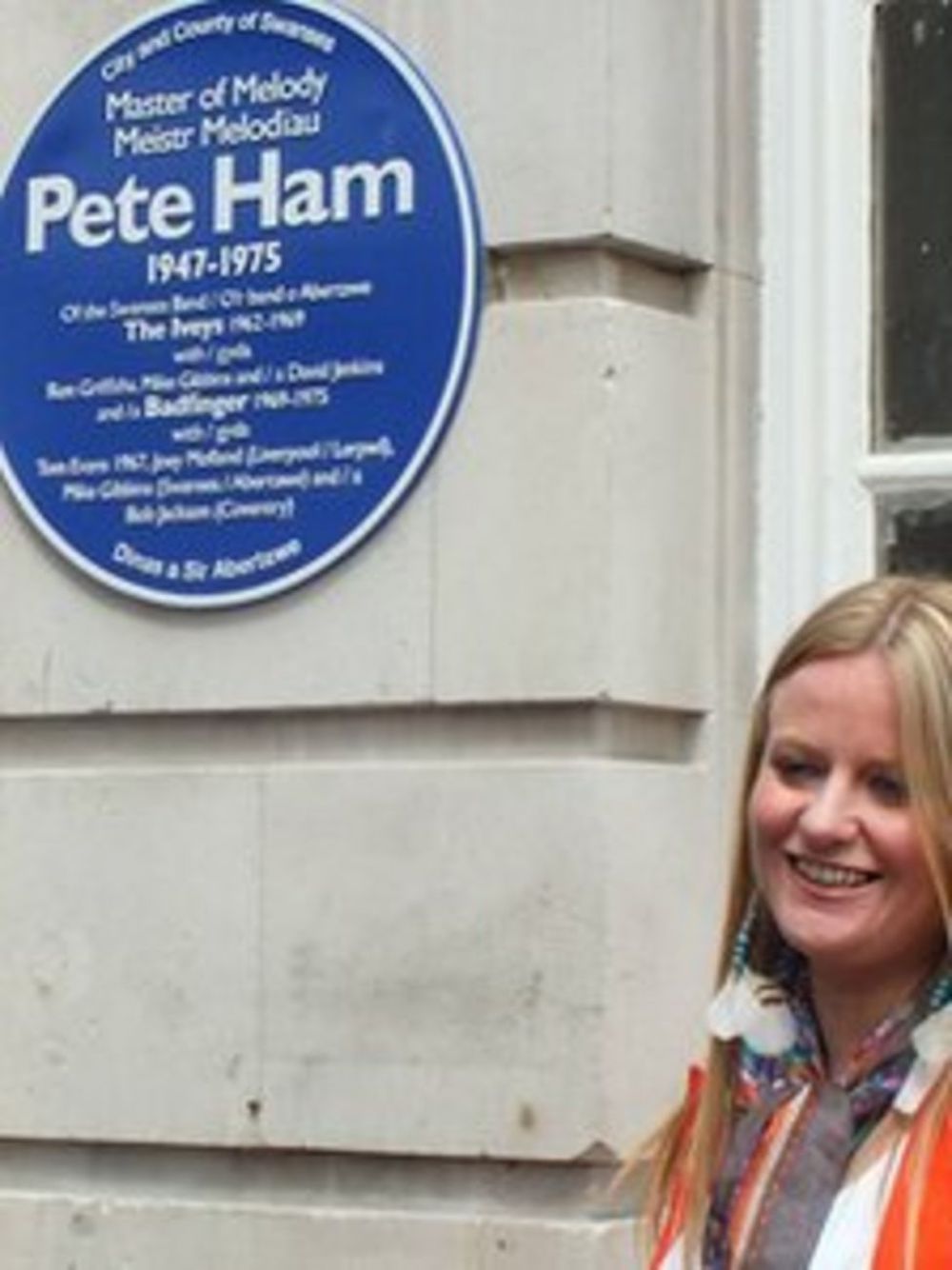
As for Polley, in 1991 he pleaded no contest to charges of misappropriating funds and money laundering. Aeronautics engineer Peter Brock accused Polley of swindling him out of $250,000 after the two set up a corporation to manufacture engines. Polley was placed on probation for five years and ordered to return the money to Brock, although he never actually did. Polley died in 2009 at the age of 87. He never expressed any public remorse for any of his fraudulent actions.
For years, the Ham name lived on in Swansea through The John Ham Music Shop on Mansel Street. The business, which sold musical instruments, belonged to Pete’s brother. A more permanent memorial was erected on April 27th 2013 (Ham’s 66th birthday) with the songwriter becoming the first recipient of the city’s new Blue plaque scheme. His daughter Petera spoke at the ceremony at Swansea’s High Street train station.
As for legacy, James Dean Bradfield of Manic Street Preachers says ‘I can’t think of a musician who helped create so much amazing music but who was subsequently so unrecognised for his efforts’. At least Baby Blue’s inclusion at the end of Breaking Bad brought Badfinger’s music to a new generation, with it becoming a top-selling song on iTunes following the broadcast. As a result, the song charted in the UK for the first time, reaching number 73.
The last word goes to Petera: ‘Although I didn’t know my dad, I still feel very close to him through his music…I love listening to his songs, it makes me feel very close to him and it makes me very very proud’.
Support our Nation today
For the price of a cup of coffee a month you can help us create an independent, not-for-profit, national news service for the people of Wales, by the people of Wales.






In my opinion Badfinger were as good as the Beatles. And it’s a tragedy that Pete Ham and Tom Evans lives ended in such sad way thanks to their swindling manager.
My brother knows one of Pete Ham’s schoolfriends & former band member Roy Anderson who was his drummer in the early days when the band went under the name, the Iveys. And I myself have visited Pete Ham’s resting place at Morriston Cemetery in Swansea.
It just goes to show that ‘you need more than talent’.
Exceptional talent, heartbreaking story, beautifully written article; thanks for the music Pete, Tom, Mike and Joey.
See above.
Mr. Barton has written a good article to try and shine a light on not only a promising artist but also a good band. “Tragic” is an appropriate word. The story of Ham, Evans, and Badfinger is a movie waiting to be made.